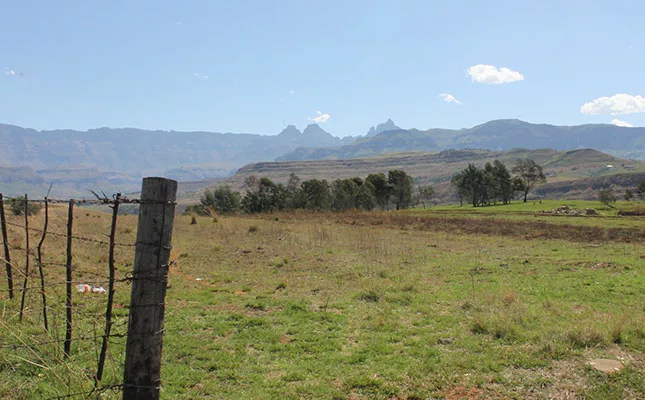
What is the current state of rural safety and security in South Africa?
Farm attacks and murders are continuing at an alarming rate. According to our latest statistics, 13 farm attacks were reported in the first half of October 2025 alone.
Overall, farm attacks are increasing, while murders show a slight decrease, likely due to communities becoming more vigilant and secure through structures such as farm watches. However, rural areas face targeted violence, stock theft, and equipment theft, which are eroding food security and community stability.
Tell us more about AfriForum’s focus on farm watches and how it started.
AfriForum’s farm watch initiative grew from our broader commitment to community self-reliance in safety, launched as an extension of our neighbourhood watch programme in 2012. It emerged in response to the escalating farm attacks post-2000s when government inaction left rural communities vulnerable.
We recognised that farmers, often isolated, needed organised, proactive defence mechanisms. The disbandment of the then-Commando System left a void that needed to be filled. Our first farm watches were established in high-risk areas like Limpopo, starting with basic patrols and communication networks.
What are the benefits of being part of an AfriForum farm watch?
Joining an AfriForum farm watch provides invaluable security and empowerment for farmers and rural residents. Key benefits include access to advanced communication networks, an integrated information system for real-time alerts, specialised training in tactical response, firearm handling, personal protection, and drone surveillance for monitoring vast properties. Members also receive legal support if needed.
Beyond safety, the farm watches foster community cohesion, reduce isolation, and boost confidence. Ultimately, it’s about reclaiming control. Our members aren’t just victims; they’re defenders of their livelihoods and families.
How has the project grown since its launch?
Since 2012, AfriForum’s farm watch network has expanded from a handful of local groups to 177 structures across all nine provinces, incorporating farm-specific and hybrid rural watches.
This growth has been accelerated by technical upgrades such as drones, apps for incident reporting, and extended training modules on stock theft prevention. We’ve shifted from being reactive to proactive, with data-driven analysis informing national advocacy.
What are the reasons for the farm attacks and murders? Is there a pattern, and do patterns differ between regions?
Farm attacks stem primarily from organised robbery, exploiting rural isolation, but the crimes are often characterised by gratuitous violence, torture, and elements of political incitement. Perpetrators often use vehicles for escape over poor roads, targeting farms for cash, weapons, and vehicles. The long distances to towns aid undetected planning. However, in many attacks, nothing is stolen at all.
Gauteng experiences more smallholding attacks due to their urban proximity. In Limpopo and KwaZulu-Natal, a higher incidence of murders is reported, sometimes tied to cross-border syndicates. In the Western Cape, the crimes are often focused on equipment theft on wine farms, although violent attacks have increased there. The Eastern Cape and Free State grapple with stock-related violence and, unlike urban crime, these incidents show signs of syndicated organisation.
Tell us more about the impact of these crimes on farms’ long-term profitability and sustainability.
Beyond attacks, stock theft, equipment theft, and crop sabotage devastate the viability of farming, with direct livestock losses alone exceeding R880 million in 2024/25.
Stock theft erodes herds, forcing farmers to divert production budgets to security like fencing and patrols, hampering reinvestment. Stock theft is also notoriously underreported due to farmers’ lack of trust in the South African Police Service’s (SAPS) ability to solve these crimes.
Crop seed theft undermines yields, exacerbating input inflation. Over the long term, this slashes profitability, resulting in emerging farmers losing immediate income, while commercial farms face depopulation and job cuts.
However, AfriForum’s farm watches maintain robust, ground-level co-operation with SAPS, exemplified by joint operations like Operation Masakhane in the East Rand, Gauteng, in March this year. We also share information and assist in tracking criminals, despite low conviction rates – only 66 suspects were convicted from 1 402 incidents between 2019 and 2022.
But political decision-makers’ denialism adds to the problem. While SAPS members at ground level collaborate effectively with us, leadership’s selective responses to the issue of rural crime and criminality illustrate ignorance or indifference.
What is the economic impact of crime and criminality on rural areas and towns?
These crimes inflict profound economic damage on rural communities, costing billions of rands annually and threatening food security. Farm attacks and thefts lead to the depopulation of the platteland, with farmers abandoning land, resulting in job losses and rural economic decline.
Stock theft inflates food prices and puts marked pressure on farmers’ profit margins. Towns suffer from reduced agricultural output, negatively affecting supply chains, tourism, services, and tax revenue, while also deterring investment.
Prioritising rural safety could help reclaim this potential, but continued inaction perpetuates a vicious cycle of poverty and exodus.
For more information email Jacques Broodryk at [email protected].
Get trusted farming news from Farmers Weekly in Google Top Stories.
➕ Add Farmers Weekly to Google ✔ Takes 10 seconds · ✔ Remove anytime






